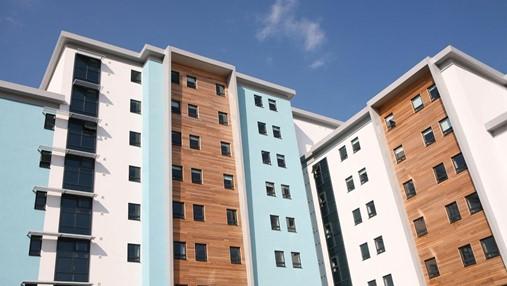Strata titles, also known as stratified properties, are usually for assets in a multi-story building. This usually indicates that the land belongs to the property's owners (i.e. developers).
Strata titles are separate titles assigned to units of houses, apartments, or offices inside a development that shares common facilities such as gated and guarded communities, security, parking, and other amenities managed by a common owner.
Individual title
Individual titles are often issued for landed properties such as semi-D homes, terrace houses, and bungalows, to name a few. It's awarded to you if you're the sole owner of a large plot of land.
It should be noted that Form 14A in the Malaysian National Land Code is required to sell such a property. Form 16A applies to the property's legal charge with individual title by the owner to their financier.
To put it in short words, there isn't much of a difference to be found. The only difference is personal preference and needs. These titles have no impact on the value of the property.
Here’s a summary of strata title and individual title:
| Strata title | Individual title |
Ownership structure | More than one owner shares the ownership of the property | The buyer holds the ownership of the land and property |
Nature of issuance | To properties in high-rise buildings | To landed properties |
Type of home | Houses such as condominium or apartment units | Houses etched on firm lands such as terrace, bungalow, and semi-detached house |
Registration process | It is relatively slower compared to the process done for individual title owners | It is generally performed faster for individual title owners |
Financial ease structure | Financial aids are generally easy to access but the process may be more challenging compared to that the journey of individual title ownership | Financial aids are easier to acquire and more accessible for individual title owners |
Responsibility structure | Total maintenance responsibilities fall on the single owner | Maintenance is shared by all co-owners |
Table from: PropertyGuru
Despite their popularity, strata titles have their pros and cons. The followings are the benefits of buying into strata title:
- If you live in a strata-managed building, the owner's corporation is in charge of common area maintenance, and you are usually just responsible for your own lot. The advantage of this is that you may go on vacation knowing that the strata manager will take care of any difficulties that arise while you're gone. You pay a strata fee every three months, which is used to manage the common area maintenance.
- Affordability and location are two more factors to consider when purchasing a strata property. First-time homebuyers and the elderly have the opportunity to purchase a property in a desirable location that might otherwise be out of reach if they were buying a house.
- Swimming pools, gyms, landscaped gardens, and outdoor entertaining areas are common features of modern strata buildings. Certainly, a luxury that most first-time buyers could not imagine when purchasing a property, and it's all kept in good condition.
- People who have little or no relatives can become active members of a strata building's community and participate in its management. Residents who get to know their neighbours and socialise with them can form strong and well-coordinated property management councils. Having nearby neighbours who come and go at different hours is an excellent security measure for everyone.
On the other side, the disadvantages of buying into strata title are:
- The number one drawback that most property owners dislike is strata charges or strata fees related to the purchase of the property. These costs are normally paid every three months and go toward maintaining the building, its facilities, and its surroundings. As a result, a larger building with more amenities, such as pools and gyms, may require higher monthly fees.
- Because council rates are charged for each unit rather than the entire building, the property owner must pay them in addition to any strata fees.
- If you live in a complex where the owner's corporation is inefficient, it is a frustrating and time-consuming procedure to get any major renovations or changes made.
- Depending on the building's strata by-laws, you may be limited in where you may park, whether you're allowed pets, a BBQ on your balcony, and what renovations you can make to your property.
- In some situations, owner's corporations may take a long time to make decisions, and requests may be rejected.
- Because the value of your property is directly tied to the worth of others in the complex, the amount of value you may add through home improvements and renovations may be limited.
.jpeg)
_PH_Banner_(Desktop)(1200x180px).png)







.png)
.png)
.png)

.jpeg)

